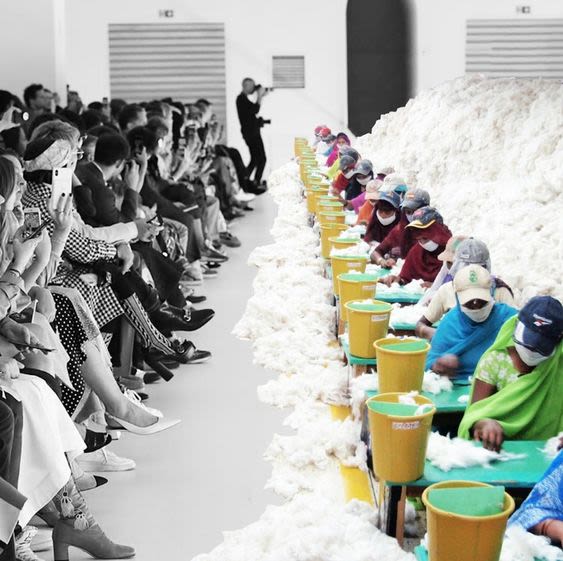Power of choice
Slowing down is a choice if sustainability is to be achieved
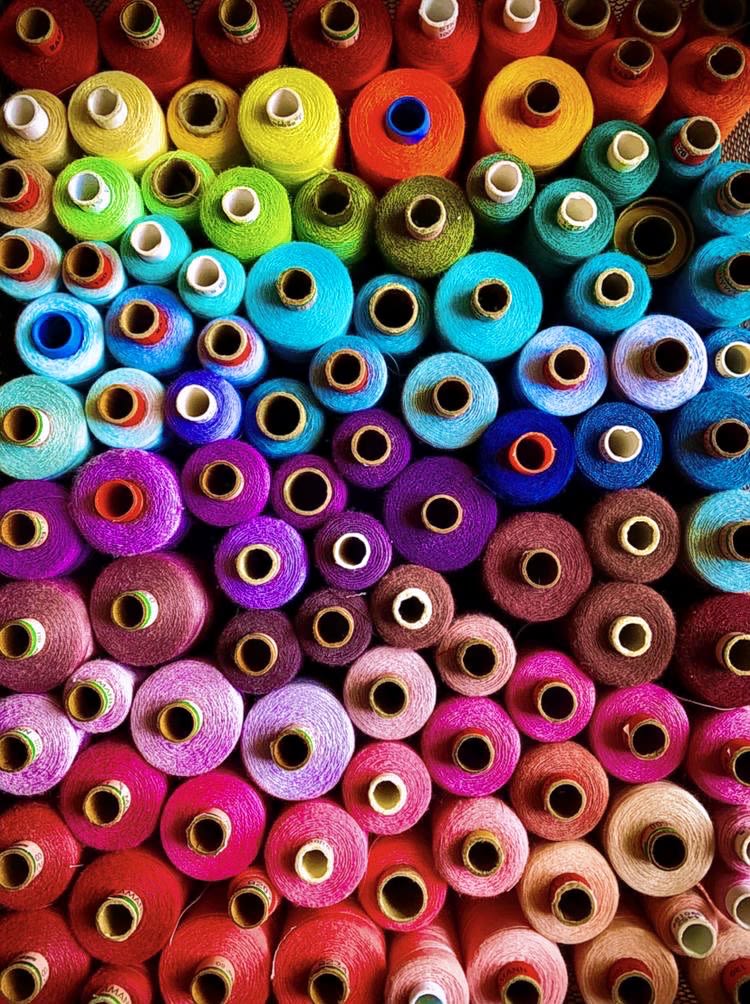
It is also “us”, not only them


Ashish Dhaka, co-founder of BèynïBoï, a design-centric sustainable brand.
Ashish Dhaka, co-founder of BèynïBoï, a design-centric sustainable brand.
From vision to impact
Mannat Jain gets candid with Ashish Dhaka, co-founder of BèynïBoï, an innovative and sustainable brand
The rise of fast fashion has caused environmental concerns about the impact of the fashion industry on climate change. BèynïBoï, a groundbreaking brand, is challenging the norms of fashion design by redefining style through sustainability, traditional craftsmanship, and creative innovation.
Ashish Dhaka, co-founder of BèynïBoï, is leading the charge in combating excessive waste and pushing the boundaries of sustainable fashion. He emphasises the need for brands to develop methodologies and design systems that reduce waste generation and minimise environmental impact throughout the supply chain. Dhaka believes that sustainability should be a philosophy rather than a marketing trend.
Running a successful sustainable business involves considering the entire lifecycle of a garment. Dhaka emphasises the shared responsibility between the consumer and the designer in making products more sustainable. Consumers can contribute by minimising pollution in how they use the garments they own.
BèynïBoï aims to promote sustainability in a multifaceted way, drawing inspiration from vernacular Indian techniques and incorporating jugaad innovation. The brand goes beyond selling garments by working with textile waste, mending and repairing garments, and reconstructing pre-loved pieces. Dhaka encourages a holistic approach to design, embracing diverse avenues and rejecting limitations.
Dhaka advises aspiring sustainable brands to prioritise transparency and genuine commitment. He suggests that brands should develop their own methodologies and thoroughly assess the sustainability of their processes. The industry should address the issue of greenwashing by establishing a governing body to certify brands as truly sustainable.
Reflecting on the progress of sustainability in the fashion industry, Dhaka acknowledges the overlap of terms like conscious, ethical, green, and slow fashion with sustainability. However, he emphasises the importance of brands identifying specific aspects of their processes that can be sustainable and making informed choices about better alternatives.
BèynïBoï has revolutionised fashion by prioritising sustainability, traditional craftsmanship, and creative innovation. With Ashish Dhaka's insights, the brand sets an example for others to follow in building a truly sustainable future for fashion.
"As the psyche of a consumer, we need to be trained and need to be informed as to what is need, desire and aspiration" - Ashish Dhaka in the documentary "Sustainable Psyche"

Sourced from BèynïBoï
Sourced from BèynïBoï
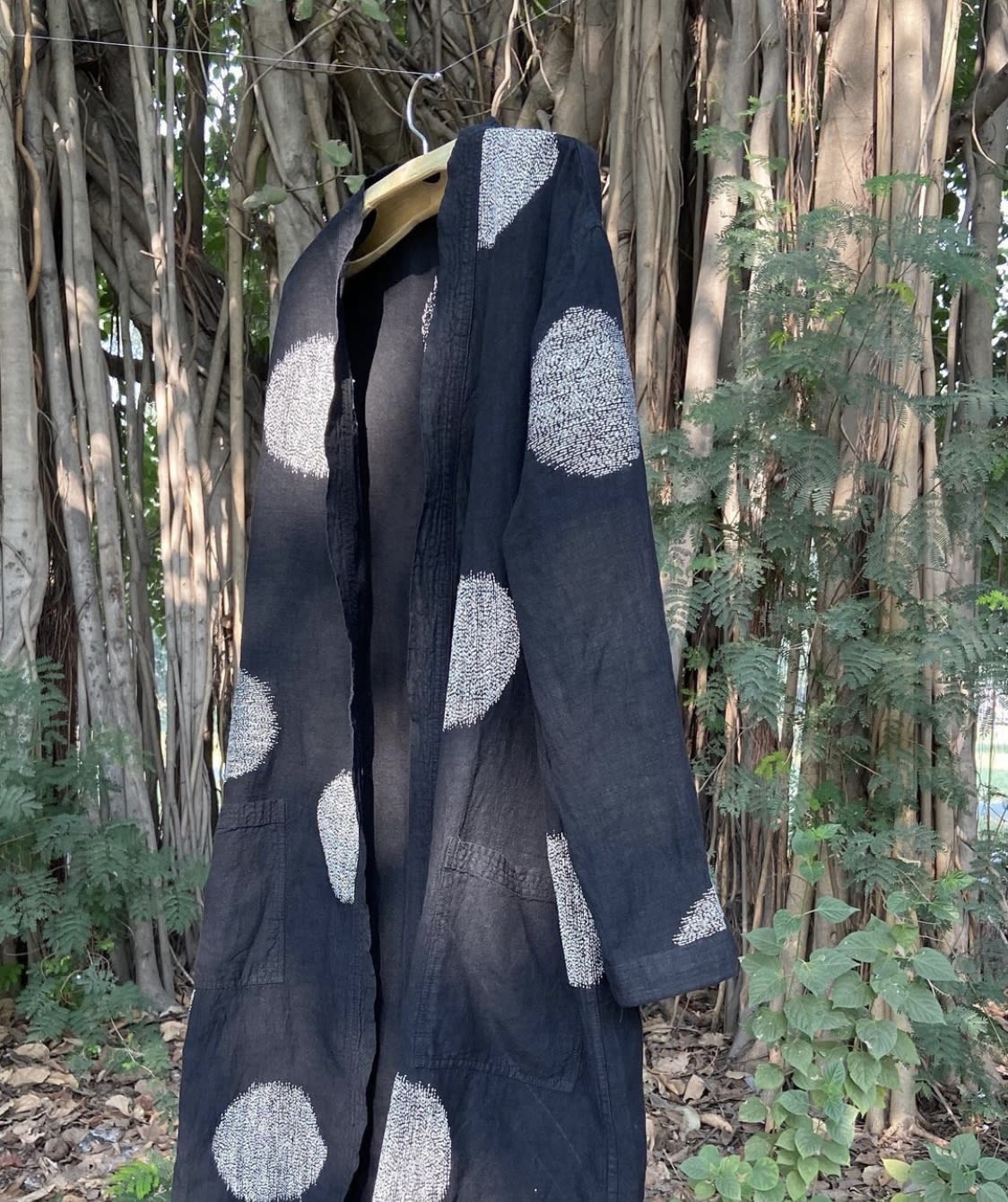
Sourced from BèynïBoï
Sourced from BèynïBoï

Sourced from BèynïBoï
Sourced from BèynïBoï
Unveiling the path to a sustainable future: balancing needs and preserving resources
By Bhaavya Aggarwal and Khushboo Arora
Imagine a world where we seamlessly blend environmental preservation, social justice, and economic prosperity, leaving a legacy for future generations. Sustainability is the force driving this vision, addressing environmental challenges, promoting social equality, and driving economic development. Inspired by social justice and conservationism, sustainability has become a global focus. In the late 20th century, the concept of 'sustainable development' gained traction, aiming for three essential pillars: environmental sustainability, social development, and economic growth.
However, pursuing sustainability often comes at a cost, with industries facing reduced profit margins. It's crucial for consumers to support transformative changes and boycott brands that disregard the environment. Goal 12 of the Sustainable Development Goals (SDGs) emphasises the need for sustainable consumption and production patterns.

Addressing the triple planetary crisis demands resource efficiency, waste reduction, and a new circular economy. Fashion brands play a pivotal role by adopting sustainable practices, reducing waste, and spearheading responsible e-waste management. Collaboration between the fashion industry, governments, and stakeholders is essential in developing policies, infrastructure, and fostering a culture of responsible e-waste management. By making conscious choices and rallying behind sustainable brands, we can shape a world where sustainability is more than just an aspiration—it's a way of life.

Unsustainable practises have become more prevalent in the fashion business, and consumers are unquestionably a major factor in this urgent problem. Consumer habits significantly impact the environment and society, from the explosive expansion of fast fashion to the disposal of clothing.
Here's an overview of how consumers contribute to overconsumption in fashion and how their practises often diverge from sustainability:
Fast fashion culture
Fast fashion revolves around low-cost apparel that follows the latest trends. Consumers are enticed by affordability and frequent product turnover, leading to a culture of excessive buying and quick disposals.
Impulsive shopping
The desire for new and stylish items drives consumers to indulge in impulsive shopping. As a result, clothing accumulates and is often used only a few times before being discarded, fueling further overconsumption.
Low quality and planned obsolescence
Many fast fashion products are designed to have a short lifespan, pushing customers to replace them frequently. This results in waste creation and resource depletion.
Lack of awareness and education
Consumers may not fully grasp the environmental and social consequences of their fashion choices. The true cost of fast fashion, including pollution, resource depletion, and poor working conditions, is often concealed.
What can we do about it?
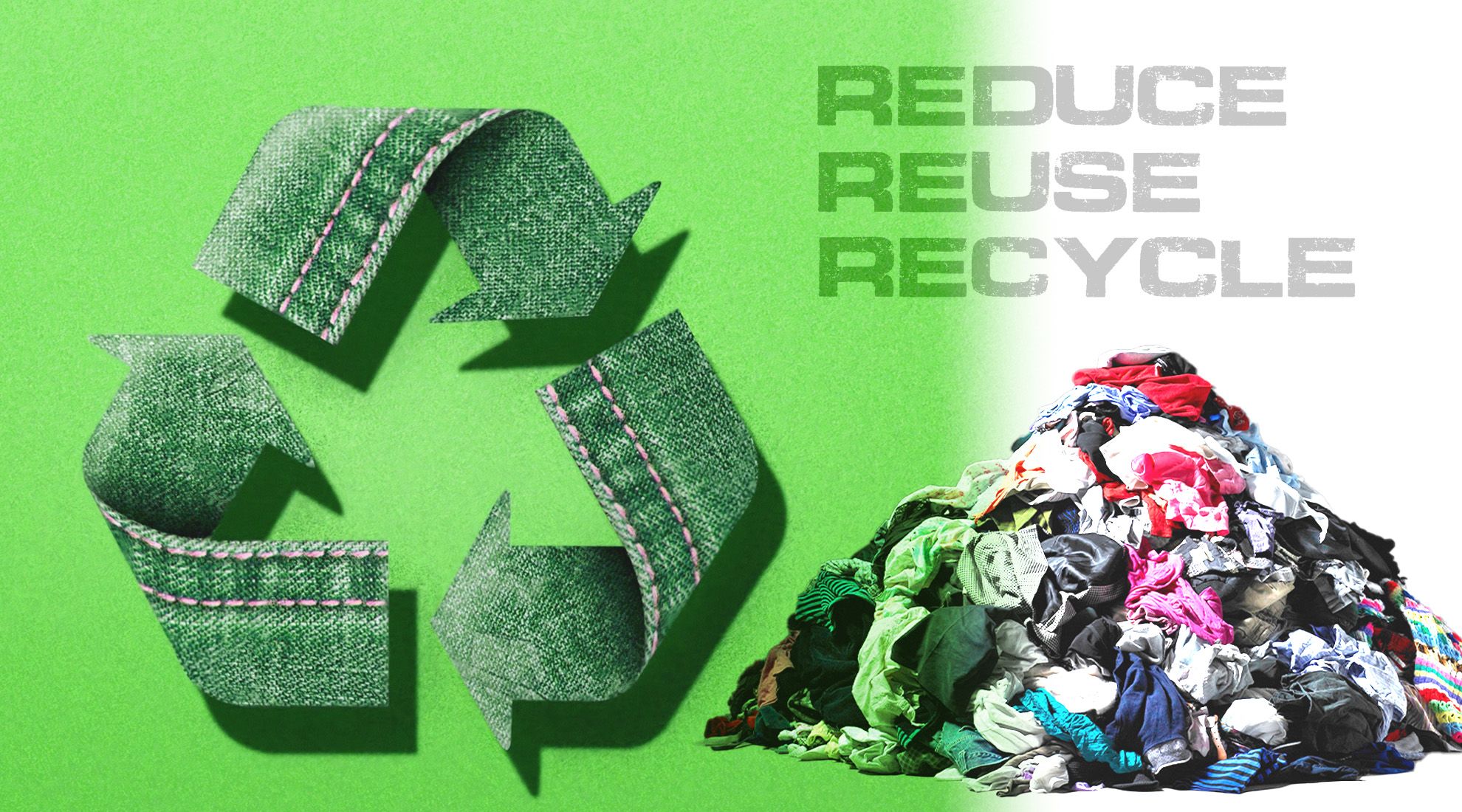
To make a difference and promote sustainability in fashion, consumers play a vital role. By embracing slow fashion, focusing on quality and durability, and supporting sustainable brands, people can help to bring about positive change. Exploring second-hand options, creating capsule wardrobes, and repairing or upcycling damaged clothing are all effective ways to reduce overconsumption. Some steps consumers can take include using clothes rental services; supporting sustainable brands; pushing for transparency, and DIY and upcycling initiatives.
Being a sustainable consumer is an ongoing journey that requires mindful decision-making, a shift in mindset, and a commitment to minimising environmental impact. Together, consumers have the power to drive systemic change and build a fashion industry that values both the planet and people's wellbeing.

Sustainable Shifts
By Khushi Gupta
Sustainability is not just a concept, it's a way of life that can make a significant impact when embraced by individuals and communities. In the podcast below sustainability takes centre stage and transforms lives. Join us on an exhilarating journey as we delve into the power of sustainable living and unlock its potential for positive change with Mr Arvind Goel.
Podcast: Khushi Gupta in conversation with Mr. Arvind Goel

From waste to wow: big brands throwing big shots to become sustainable
by Mahika Sethi
In today's rapidly changing world, sustainability has become a critical focus for businesses across various industries. As the consequences of climate change and environmental degradation become increasingly evident, brands are stepping up to the challenge by adopting conscious efforts to be more sustainable. These forward-thinking companies are not only recognising their responsibility towards the planet but also the growing consumer demand for eco-friendly and socially responsible products. In this article, we explore some of the notable brands leading the way in sustainable practices.

Unilever
Unilever, a global consumer goods company, has made sustainability a core component of its business strategy. Through its Sustainable Living Plan, Unilever aims to reduce its environmental footprint by improving water and energy efficiency, sourcing sustainable raw materials, and supporting social initiatives. The company's commitment to sustainable agriculture and responsible sourcing has helped transform entire supply chains.

Tesla
Tesla, an electric vehicle pioneer, has revolutionised the automotive industry with its commitment to sustainable transportation. By producing high-performance electric cars, Tesla is actively reducing greenhouse gas emissions and promoting the adoption of clean energy. The company's investment in renewable energy technologies, such as solar panels and energy storage solutions, further emphasises its dedication to a sustainable future.

IKEA
IKEA, the Swedish furniture giant, has embraced sustainability throughout its operations. The company focuses on resource efficiency, promoting circular economy principles, and minimising waste. IKEA is committed to sourcing sustainable materials, reducing emissions, and providing customers with affordable and eco-friendly products. Its sustainability initiatives extend beyond the products themselves to include sustainable packaging and energy-efficient stores.

The Body Shop
The Body Shop, a leading cosmetics brand, has long championed ethical and sustainable practices. The company is against animal testing and sources its ingredients responsibly, often through community trade initiatives. The Body Shop actively supports various social causes, such as empowering women and advocating for human rights. Their commitment to sustainable beauty has set a precedent for the industry.

Towards an equitable future
In a world where conscious consumers reign, brands are awakening to the urgent need for sustainability. The trailblazing companies mentioned above are leading the charge, taking bold steps to transform their operations and champion a greener planet. By weaving sustainable practices into their very fabric, these brands not only walk the talk but also ignite a global movement towards a brighter, more equitable future. As the spotlight on sustainability intensifies, it is high time for all brands to seize the opportunity.
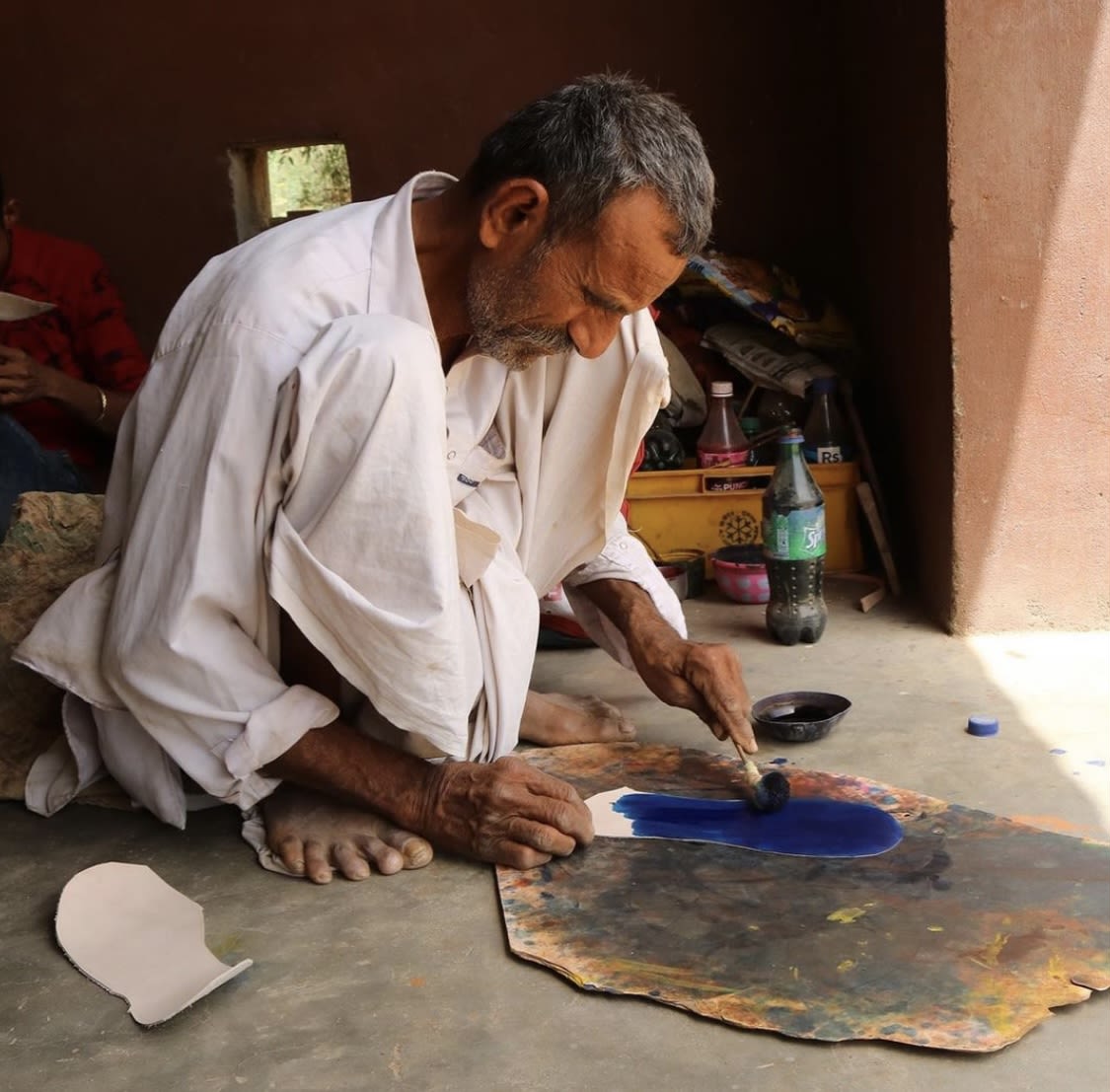
In the documentary below Shalini Bisht, Associate Professor of School of Fashion and Ashish Dhaka give their views on how sustainability can be implemented at a young age and how the industry can adapt.
by Tanishq Arora, Ishaan Vatsa and Vanshika Dhawan

Contributors:
Bhaavya Aggarwal
Ishaan Vats
Khushboo Arora
Khushi Gupta
Lauryn Kelly
Mahika Sethi
Mannat Jain
Niamh Walker
Tanishq Arora
Vanshika Dhawan
